The Unfortunate Testimony of Admiral Buck
THE STANDING SENATE COMMITTEE ON NATIONAL SECURITY AND DEFENCE
OTTAWA, Monday, November 15, 2010
The Standing Senate Committee on National Security and Defence met this day at 4 p.m. to consider a motion to change the official structural name of the Canadian Navy.
Senator Roméo Antonius Dallaire (Deputy Chair) in the chair.
[English]
The Deputy Chair: Good afternoon, honourable senators, ladies and gentlemen, the staff, witnesses and guests. Welcome to this session of the Standing Senate Committee on National Security and Defence that is reviewing a motion proposed by Senator Bill Rompkey in the Senate, seconded by Senator Fraser, with regard to the name of the Canadian navy. I will read the motion so that we are all aware of what it says with respect to the aim of our exercise this afternoon:
That the Senate of Canada encourage the Minister of National Defence, in view of the long service, sacrifice and courage of Canadian Naval forces and personnel, to change the official structural name of the Canadian navy from "Maritime Command" to "Canadian Navy" effective from this year, as part of the celebration of the Canadian Navy Centennial, with that title being used in all official and operational materials, in both official languages, as soon as possible.
"Encourage" is a significant verb in this exercise.
That is the motion. It is not an insignificant gesture when we consider the impact of terminology, tradition and the ethos of the members of the forces in general and, in this particular case, the navy.
Today, we have a naval flavour to the exercise. I have to warn you that I am wondering whether I am qualified to be chair as two of my children are in the naval reserve. However, I have a son in the infantry, so I think that will balance it out.
[...]
The Deputy Chair: Our next witness today is Vice-Admiral (Retired) Ron Buck, National First Vice President, (Former Chief of Maritime Staff) Navy League of Canada. He joined the navy in 1967, commanded a number of ships and was involved in the project management of upgrading of ships, TRUMP as an example. He also commanded training systems and was involved with a major management restructuring of the Canadian Forces, known as MCCRT, after the massive budget restrictions in the early 1990s.
Vice-Admiral Buck was made the first Commander of Canadian Fleet Pacific and appointed Commander of Maritime Forces Pacific in 1998. He was promoted to vice-admiral in 2001 and was made Chief of the Maritime Staff, which is what we are talking about today. In September 2004, he was appointed Vice Chief of the Defence Staff. He retired in 2006.
Admiral, welcome. If you have an opening statement, please proceed.
Vice-Admiral Buck: Thank you, I do.
I am speaking in two capacities; one is in my Navy League capacity. The Navy League was founded in 1895 without a "Royal," but it was influential in the creation of the navy in 1910. I am also speaking in my capacity as a retired commander of Maritime Command, or in parlance that Canadians would understand, as commander of Canada's navy. One of the problems that I will touch on is that to the Canadian public, "Maritime Command" is absolutely meaningless. It means nothing.
I am proud of the accomplishments of Canada's navy, "Royal" or not, in its first 100 years of service. When the Naval Service was established in 1910, it was first named the "Naval Service," and latterly in 1911, as you heard from Admiral Mifflin, it was named the "Royal Canadian Navy."
It is instructive that in several documents written around that time by an individual named Louis-Philippe Brodeur — the first Minister of the Naval Service and Minister of Marine and Fisheries — he refers to the "Canadian Navy," not the "Royal Canadian Navy."
Committee members heard an excellent synopsis by Rear-Admiral Mifflin about the history of the navy. It is true that the Canadian navy, when it was established as the RCN, and until it came of age during a uniquely Canadian epic battle, which is the Battle of the Atlantic, was patterned on and greatly dependent upon support of all kinds from the Royal Navy. It mimicked the Royal Navy. However, by war's end, the RCN was carving out a uniquely Canadian role, which was first seen in Korea and blossomed through the Cold War to the present. During the Cold War, Canada's navy was a highly capable anti-submarine warfare navy. Today, it is a small but highly competent, general-purpose global navy. The navy continues to deploy wherever required to support a wide range of operations, ranging from anti-terrorism to anti-piracy to humanitarian aid or to patrolling and enforcing the sovereignty of our own waters.
After unification in 1968, Maritime Command was created as a command within the Canadian Forces. The professional head of Canada's navy today is both a commander and a staff officer to the Chief of Defence Staff. Both roles are critical and need to be maintained in any name change.
Outside of the Canadian Forces, the title "Maritime Command" is essentially meaningless because it is not clearly descriptive of what it is. "Canadian Navy," on the other hand, is very descriptive. It is for this reason that I am supportive of a name change to better clearly identify for Canadians the name of their navy. I feel strongly on the subject.
By the way, I had a father and uncle who proudly served in the RCN. I love the RCN, but I agree with the admiral.
As proud as I am of having had the opportunity to serve in the RCN, I believe that any name change from "Maritime Command" should not be to return to the "Royal Canadian Navy" but rather to "Canadian Navy," establishing it as a command element of the Canadian Forces. I can expand on that in questions if you wish, senators, but that is important. That command structure gives the commander of the navy the appropriate authority as the professional head of the navy to generate Canadian naval forces. I believe that reflects Canada's original intent to look to its own sovereignty as an independent nation. It is true to Louis-Philippe Brodeur’s own words, but most importantly, it is true to the uniquely Canadian institution that is Canada's navy of today, in particular, the men and women who serve proudly in that name.
The Deputy Chair: Thank you for raising an interesting dimension with respect to the terminology used for the chief of the naval forces and the command dimension. As the committee works its way through this study, we may require some clarification in that regard.
Senator Peterson: Thank you for your presentation. I agree with you that "Maritime Command" does not mean anything. I think most Canadians think it refers to the Canadian navy. When they read about all this, they might be quite perturbed that the name is something different. Do we have any sense of how the Canadian public feels about this issue?
Vice-Admiral Buck: You would have to divide the public into two tranches: veterans and the majority of Canadians. You know what veterans would like. They would like "Royal" because that is what they served in and that is completely understandable.
However, average Canadians, which are about 90 per cent of all Canadians, know virtually nothing about its navy, not even its name. I strongly support anything that can be done to support serving men and women and that can make Canada's navy resonate for Canadians. In that vein, I believe that "Canadian Navy" does that.
I also believe that legally, in a structural sense from the point of view of the Canadian Forces, it is relatively easy to do. All that must be done from a documentation standpoint is change the command name from "Maritime Command" to "Canadian Navy" and structure it as a command element of the Canadian Forces.
Senator Peterson: You think that this can be done in isolation, without involving the other two segments of the Canadian Forces.
Vice-Admiral Buck: No. If this motion were to be approved, I would think the government would engage the Canadian Forces through the Chief of the Defence Staff. I suspect there would be a discussion of not doing one but of doing them all. I cannot speak for the Canadian Forces, but that is what I would expect.
Senator Lang: I would like to comment on the practical aspect of changing the name. If we changed it to "Royal Canadian Navy," it would go through the same procedure and would not have to be done differently.
Vice-Admiral Buck: No, it would have to be done differently.
Senator Lang: Could you explain that?
Vice-Admiral Buck: If you want to return to "Royal," that would take more than an internal action of the Department of National Defence.
The Deputy Chair: We will have the clerk check this out, but if I am not mistaken, when we unified and became Maritime Command, the term "Royal Canadian Navy" was not reduced to nil strength. You can have a regiment reduced to nil strength but it is still on the books. The name "Royal Canadian Navy" was actually struck.
Vice-Admiral Buck: It does not exist.
The Deputy Chair: It was eliminated from the order of battle of the Canadian military. You can bring back "Canadian Navy" because that is within our purview. However, we would have to seek Royal Assent to use the term "Royal." We cannot go back to "Royal" automatically because it has been eliminated. The Queen must agree to "Royal." That can be done, obviously; it is not impossible.
Senator Lang: I do not want to belabour this point, but would that require legislation or strictly the consent of the Queen?
Vice-Admiral Buck: No, it would require the consent of the government, but not necessarily legislation and the Queen's consent.
Senator Plett: Who decides what our naval forces should be called? As I understand it, the name is not defined in law. Section 14 of the National Defence Act states simply:
The Canadian Forces are the armed forces of Her Majesty raised by Canada and consist of one Service called the Canadian Armed Forces.
Furthermore, the Minister of National Defence can at any time issue a ministerial order to alter the name. Am I correct? Would that not apply to "Royal" as well?
The Deputy Chair: No.
Senator Plett: It would not?
The Deputy Chair: Not to "Royal."
Vice-Admiral Buck: However, the minister can, through a ministerial order, create elements of the Canadian Forces. There are a number of types of elements: units, formations and commands. The navy, the army and the air force are all structured today as commands. The minister would have the authority, if he chose to do so, to change the name of the command today called "Maritime Command" to "Canadian Navy."
Senator Plett: We would not need an act of Parliament, would we? Could the minister do that on his or her own?
Vice-Admiral Buck: That would be within ministerial authority. You will notice that in the act there is no description of the structure of the Canadian Forces or the Canadian Armed Forces.
Senator Plett: Thank you for that.
Would you not agree that "Royal" designations are the norm and not the exception?
Vice-Admiral Buck: Again, I believe that the Royal Canadian Navy grew out of the Royal Navy. Today, if you were to compare the navies, even the internal structure and operating inside a Canadian ship versus a British ship, you would find it different. In this country we have many fine institutions. A number are "Royal," but many are not.
I believe the serving men and women today, none of whom served in the Royal Canadian Navy, need to be comfortable with any change. As you heard Rear-Admiral Mifflin say, I believe they would be very comfortable with "Canadian Navy."
Would most be comfortable with "Royal Canadian Navy"? Probably. Would some not be comfortable? Certainly, and it would create controversy, not just within the navy. It would create controversy inside the Canadian Forces vis-à-vis the army and the air force. It would be quite significant controversy, I would suggest. Regrettably, it would also cause great controversy across the country and, potentially, Canadians would continue to see the navy as not being a uniquely Canadian instrument.
Senator Plett: I stated earlier that my main reason for supporting "Royal" is not necessarily because of my allegiance to the Queen, but out of a sense of consistency. Members of the Canadian Forces swear allegiance to the monarch, do they not?
Vice-Admiral Buck: Yes.
Senator Plett: Would that not create some inconsistency?
Vice-Admiral Buck: No. We have the Canadian Forces. There is no "Royal" title in the Canadian Forces.
Senator Plett: Why would the Canadian Forces be opposed? Why would they have a problem with us going to "Royal"?
Vice-Admiral Buck: It would create controversy about what to do and how to deal with the two other services. It would require significant activity outside of the Department of National Defence.
Is it doable? Yes. However, I suggest to you that if the Canadian Forces and the minister of the day decided that the army would be called the "Canadian Army," the air force would be called the "Canadian Air Force," and the navy would be called the "Canadian Navy," that could be done with a stroke of the pen and people would be very happy.
Senator Plett: As a closing comment, I might want at some point bring a motion forward to change the name of the air force to the "Royal Canadian Air Force."
The Deputy Chair: That will be an exercise for another day.
I would like to assist in the response. In 1968, we created a number of new units, which was a massive change up until then because we were chopping units left, right and centre. All the new units that were created do not use the term "Royal," including the 1st Canadian Division, which fought in World War I and which has just stood up as not being accredited "Royal."
Again, I repeat: If desired, the Chief of Defence Staff, through due process, could go to our Commander in Chief and seek Royal Assent.
Senator Plett: On that note, who is our Commander in Chief? Is it the Governor General?
The Deputy Chair: Yes, but he is not the "Royal" Governor General. That is exactly right.
Senator Plett: However, is not the Governor General the Queen's representative?
The Deputy Chair: That is correct and proud of it, too, I am sure. He looked very smart recently in uniform overseas.
Senator Segal: I want to impose on our witness and make use of his experience through a very distinguished career both as a commander of a ship and as the commanding officer of the entire navy.
If the government were to make the change to "Canadian Navy" or to "Royal Canadian Navy," looking at the two options that people are discussing, what would actually happen on ships at sea and with regular and reserve forces? Would there be an assembly? Would the commanding officer of the ship explain why this change has been made? Would the officers on the ship be invited to a wardroom to express their views or any concerns they had?
If this committee were to recommend one of the two options, "Canadian Navy" or "Royal Canadian Navy," it would still be the minister's prerogative to so decree or not. Let us assume all of that happened. What do you understand would then happen on Canadian ships at sea or under the sea and at reserve units across the country?
Vice-Admiral Buck: Practically speaking, the commander of the navy would provide background material that would flow down through the chain of command, outlining the rationale for the change throughout the Canadian navy, right down to the fleet level and then the unit level, which is, of course, the ship. The discussion in the wardroom that you suggested would in all likelihood happen.
Once that kind of direction is given, there is no debate about it. That debate needs to happen beforehand.
I agree with Admiral Mifflin that if you were to ask the average serving sailor or naval officer what they think about a name change, the vast majority would prefer "Canadian navy." With veterans, that would not be the case.
Senator Segal: There is often a difference between the official name of an institution and what people refer to the institution as in day-to-day parlance. We may refer to the Senate as Canada's upper chamber. Thousands of Canadians may have another name for what we do or another title for our institution. One of the great things about a free society is that its citizens have the absolute freedom to do that.
On an unaided word association test, when asked where they work, would the vast majority of those who now serve under Maritime Command refer to it as Maritime Command or the navy?
Vice-Admiral Buck: They would say the navy. The navy is the navy. It is known as the navy or the Canadian navy.
Senator Segal: In your judgment, that is the mindset that now exists amongst the men and women who are now serving, and their families.
Vice-Admiral Buck: Yes.
The Deputy Chair: When the army was established as Mobile Command, it was illegal to use the term "army" in any official correspondence or even to say "army" for a number of years after unification. That, of course, wore off and currently "army" is used quite commonly.
Thank you for that clarification.
Senator Mitchell: In response to the point of Senator Plett that if you swear allegiance to the Queen your organization should be called "Royal," we swear allegiance to the Queen, but I do not believe he is suggesting that we should be called the "Royal Canadian Senate."
I do not know what the term "Royal" conjures up that strengthens, enhances or furthers the image, morale or presence of the Canadian navy. As I said to an earlier witness, some of the greatest moments in our military history have been battles won that established our presence as an independent nation. Vimy Ridge is classic in that regard. I know that to use the term "Royal" conjures up an era that is not all that happily remembered by those Canadians who were alive during it, that is, a sense of colonialism and of being of lesser stature than other countries in the world. That is what "Royal" conjures up for me in this context.
Why is "Canadian" not sufficiently powerful and identifiable to define the navy? Does the addition of "Royal" to that moniker not bring less Canadianism rather than more Canadianism to the name of our Canadian navy?
Vice-Admiral Buck: I agree with that. I have to go back to 1911. Two things happened shortly after the navy was created. The first is that the Canadian government proposed a unique flag to fly on its ships, a White Ensign with a green maple leaf on it. The United Kingdom said no. Then there was a debate about language to be used inside the navy, and the direction given was that only one language was to be used.
That is ancient history, but I believe that the men and women of Canada's navy today would see no advantage to adding the word "Royal." "Canadian Navy" is what they want to be known as.
Many Royal Navy sites now frequently refer to it as the U.K. Navy. I am not suggesting they are going away from "Royal." They are not, but we are seeing changes in the common usage.
I believe that "Canadian Navy" would be the right way to go, but I also absolutely agree with Vice-Admiral Mifflin about inviting a number of naval personnel to appear before the committee, in particular the chief petty officers first class, the command chief of the navy and the chief warrant officer of the Canadian Forces, who, by the way, is a chief petty officer. They would give you an unvarnished version of what they think.
The Deputy Chair: The motion uses the following words: "That the Senate of Canada encourage the Minister of National Defence . . . ." I do not want you to speculate, but you were the vice-chief so you were close to the deputy minister, the minister and so on. In a circumstance like this, what do you think the minister would do after being encouraged by us?
Vice-Admiral Buck: He certainly would have a discussion with the Chief of the Defence Staff as the first step. On the assumption that the Chief of the Defence Staff was supportive, as I believe he would be, with a couple of caveats, I would think there would be a discussion with the commander of the navy on his views. One caveat is that in the discussion the chief would have with the minister, I would think the subject of how to deal with the army and the air force would come up. Structurally, it would be a relatively easy change for both of those services. I cannot speak for the army or the air force, but it is my sense that they would be in the same place as the navy.
The Deputy Chair: Unification legislation has not been annulled, as such, and the National Defence Act was modified. As Senator Plett indicated, they did not define the structures at the time, which was quite wise. It was left to protocol and the minister to process. However, if it is a command and the navy is recognized as the "Canadian Navy," would there not be a requirement to change some of the rules and regulations within the Canadian Forces to reflect that? Would we have to look at modifying or annulling the unification legislation?
Vice-Admiral Buck: I do not think so, because the powers and authorities of this thing that I keep referring to as "an element of the Canadian Forces" are defined by what it is. If it is a unit, it has certain powers and authorities. If it is a formation, it has greater powers and authorities. If it is a command, it has still greater powers and authorities. However, at the end of the day, only one individual has what is called control and administration authority over the Canadian Forces, and that is the Chief of the Defence Staff. All of that has to be approved by the minister. Structurally, there is very little change because you limit the authority of the institution, in this case called the Canadian navy, to that of a command. Therefore, it does not have the trappings of a separate service.
In practical terms, and Rear-Admiral Mifflin said it as well, since unification, inside the navy, everyone still refers to it as the Canadian navy. It is what it is. Most navies we work with call us the Canadian navy because they do not know what else to call us. I do not think it is that difficult to change.
I would like to go back to integration briefly as well. I am in complete agreement with integration. Unification is here and it will stay. I am supportive of it, and I am supportive of one institution called the Canadian forces, not three institutions called the army, navy and air force.
Part of the difficulty in all this, really since 1968, is that there was a move afoot — and you referred to it yourself, senator — to expunge, and I do mean expunge, anything that was navy, anything that was air force or anything that was army. I can remember a naval hospital in Halifax that had the naval crest on the building. It was ordered sand blasted off. Those things have left long scars and memories, but more for people like me because I lived them, as did the senator.
The young men and women of today know one thing. They are Canadian. They are proud of it, and they serve their country in an outstanding fashion. I think they would be fine with calling the "Canadian Navy," "Canadian Army" or "Canadian Air Force."
The Deputy Chair: The naval reserve has honorary captains. Would they argue a separate position than the regular force, do you think?
Vice-Admiral Buck: I do not think so, not the men and women who are serving today. For veterans, it would be different.
The Deputy Chair: What about the honoraries?
Vice-Admiral Buck: Some honoraries may well prefer that. That is probably true. Will they make a major issue out of it? Absolutely not. At the end of the day, the decision on what the navy should be called is not a decision for the honoraries to make. Luckily, there are fewer honorary captains and honorary colonels, far fewer, and superb ones, I might add, senator.
The Deputy Chair: We did not need that.
Vice-Admiral Buck: I do not think that would be an issue.
The Deputy Chair: Very good.
With respect to the naval reserve and integrating it within one navy, which I believe is also part of the concept, have there been limitations in naval reservists becoming fully employed within the whole of the navy in regard to capital ships, and is that something that has the potential to create friction within the navy?
Vice-Admiral Buck: No, because a decision was taken in the late 1980s to assign a number of specific roles to the naval reserve, one of which is to do one piece of the maritime surveillance. That is done in a class of ships called maritime coastal defence vessels. Those ships are, with one or two minor exceptions, totally manned by naval reservists. There is a port diving inspection team, which is a specific naval role. The navy has said, "We have a reserve and a regular force navy, so let us give them complementary roles to create one package." There are opportunities for naval reservists to augment major warships, and that still happens, but effectively the navy has integrated, much as the army has done to a greater degree through Afghanistan, if I can put it that way.
The Deputy Chair: Admiral, thank you for your clear and concise answers. It is most appreciated.

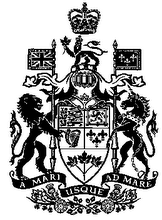


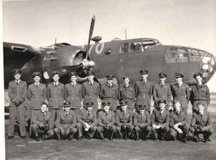

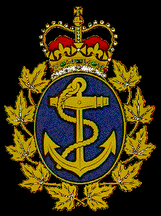




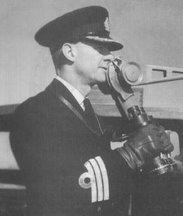
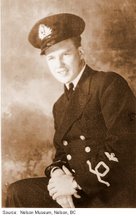


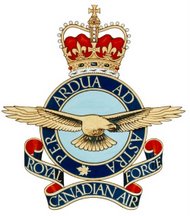
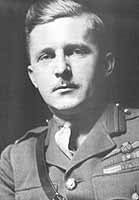
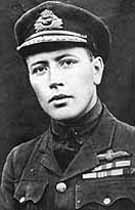
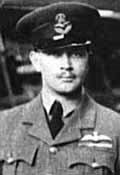








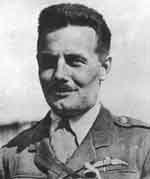



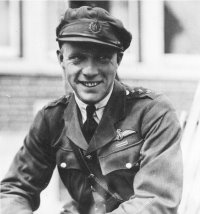


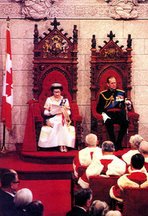
Unfortunate how mis-informed this retired admiral was regarding the "Royal" part of our navy. Disappointing, also, that he thought we didn't need to be called Royal. Until Canada becomes a republic and sheds its monarchist past, this is the way of it.
ReplyDeleteHelpful info. Lucky me I discovered your web site by accident, and I am shocked why this twist of fate did not happened earlier!
ReplyDeleteI bookmarked it.
My blog post short game school phoenix
No matter if some one searches for his essential thing, therefore
ReplyDeletehe/she wants to be available that in detail, thus that thing is maintained over here.
Stop by my webpage ... Golf Schools Las Vegas
Hi colleagues, its wonderful paragraph on the topic of educationand fully
ReplyDeleteexplained, keep it up all the time.
My web blog - upper back injury car accident
I do agree with all the concepts you've introduced to your post. They are really convincing and will definitely work. Nonetheless, the posts are too short for beginners. May just you please lengthen them a little from subsequent time? Thank you for the post.
ReplyDeleteHere is my web blog - golf putting schools
Fascinating blog! Is your theme custom made or did you download it from
ReplyDeletesomewhere? A design like yours with a few
simple tweeks would really make my blog shine. Please let
me know where you got your design. Appreciate it
Review my blog: golf gloves
Hi, I do think this is an excellent blog. I stumbledupon it ;) I may return once
ReplyDeleteagain since i have saved as a favorite it. Money and freedom is
the greatest way to change, may you be rich and continue to
help others.
Also visit my site; gall bladder symptoms women
For most recent information you have to pay a quick visit internet and on web I found this web site as a most excellent site for
ReplyDeletehottest updates.
My web-site - http://materialisticva67.skyrock.com/3149269058-Solid-Tips-For-Giving-And-Receiving-A-Restorative-massage.html
I am regular reader, how are you everybody? This article posted at this web site is actually fastidious.
ReplyDeleteHave a look at my site LED Lighting
Hello, i read your blog from time to time and i own a similar
ReplyDeleteone and i was just curious if you get a lot of spam responses?
If so how do you stop it, any plugin or anything you
can recommend? I get so much lately it's driving me mad so any help is very much appreciated.
Check out my web site ... back spasms treatment at home
Hey! I know this is kinda off topic nevertheless I'd figured I'd ask.
ReplyDeleteWould you be interested in exchanging links or maybe guest writing a blog article or vice-versa?
My website discusses a lot of the same topics as yours
and I think we could greatly benefit from each other.
If you happen to be interested feel free to send me an email.
I look forward to hearing from you! Wonderful blog by the way!
Visit my web-site; assistant physical therapist salary
Its like you read my mind! You appear to know a lot about
ReplyDeletethis, like you wrote the book in it or something. I think that
you could do with some pics to drive the message home a bit,
but instead of that, this is great blog. A fantastic read.
I will definitely be back.
Visit my homepage; Orlando Chiropractor
For those who could e-mail me with just a few
ReplyDeletestrategies on just the way you made your weblog look this excellent, I might be grateful.
My blog post ... having trouble getting pregnant with second baby
You have made some decent points there. I checked on the web to find out more
ReplyDeleteabout the issue and found most people will go along with your views on this website.
my site :: natural back pain relief for dogs
It's a pity you don't have a donate button! I'd definitely donate to this fantastic blog! I suppose for now i'll settle for bookmarking and
ReplyDeleteadding your RSS feed to my Google account.
I look forward to brand new updates and will share this blog with my Facebook group.
Talk soon!
Check out my homepage web hosting unlimited traffic
Hi Dear, are you genuinely visiting this web site daily, if so
ReplyDeleteafterward you will without doubt get pleasant experience.
Check out my webpage ... St Cloud Floral
Good answer back in return of this issue with genuine arguments and explaining all regarding that.
ReplyDeleteMy webpage ... compact refrigerators at home depot
They keep one copy of each brand where their base is, and keep
ReplyDeleteanother set somewhere secure (another building, safety deposit box,
etc. In this article, I'd like to offer some flash photography tips for indoor weddings for the new photographer. Designed with a vision to create a convenient option to the traditional schoolroom scheme the NYIP HA a list of course to choose from and do from home. Well, sometimes it is hard to say that you are moving the camera and still your photos are a bit blurry. You can buy underwater housing for your DSLR camera if you really want to, but they can cost more than the camera itself and I never want to take that big of a risk of ruining my baby. In this article, we will learn how to overcome some of the challenges that come with shooting snow pictures, as well as some tips and tricks to working in the elements and capturing the best snow scenes.
Feel free to visit my site :: trick photography and special effects book
Hey there, I think your blog might be having browser compatibility issues.
ReplyDeleteWhen I look at your website in Chrome, it looks fine but when
opening in Internet Explorer, it has some overlapping.
I just wanted to give you a quick heads up!
Other then that, fantastic blog!
Here is my blog - taylormade golf gloves on sale
I am really enjoying the theme/design of your website. Do you ever run into any internet browser compatibility problems?
ReplyDeleteA few of my blog audience have complained about my website not
operating correctly in Explorer but looks great in Chrome.
Do you have any advice to help fix this issue?
my webpage :: appliance repair company
I read this piece of writing fully on the topic of
ReplyDeletethe comparison of newest and preceding technologies,
it's remarkable article.
my web site :: personalized golf tees wedding favors
It's very trouble-free to find out any topic on web as compared to books, as I found this article at this web site.
ReplyDeleteMy weblog :: sunrisesinthewest.org
I absolutely love your blog and find many of your post's to be just what I'm looking
ReplyDeletefor. Does one offer guest writers to write content for yourself?
I wouldn't mind publishing a post or elaborating on some of the subjects you write about here. Again, awesome web log!
my weblog ... hyperguide.org
I just like the helpful information you supply in your articles.
ReplyDeleteI'll bookmark your blog and check once more here regularly. I am relatively certain I'll be told plenty
of new stuff proper here! Good luck for the following!
My website: golf Courses melbourne florida area
Very good site you have here but I was wanting to know if
ReplyDeleteyou knew of any community forums that cover the same topics talked
about in this article? I'd really love to be a part of community where I can get responses from other experienced people that share the same interest. If you have any recommendations, please let me know. Cheers!
My web site; http://nimphc.com/
Hi there to all, how is the whole thing, I think every one is getting more from
ReplyDeletethis site, and your views are good designed for new viewers.
my blog post best golf range finders
Remarkable! Its truly awesome post, I have got much clear idea concerning from this article.
ReplyDeleteStop by my page ... digital 7x golf range finder
It's not my first time to pay a quick visit this web page, i am visiting this site dailly and get fastidious data from here everyday.
ReplyDeleteHave a look at my webpage: golf accessories for Trucks